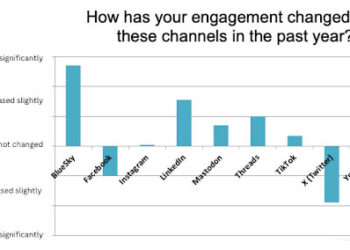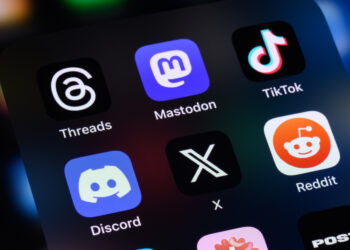
Image via Wikipedia
“You’re not supposed to read web pages, just click on the hypertexted words!” I remember saying this to my apartment mate in the early 1990s when I was showing her NCSA Mosaic, one of the first graphical web browsers. I was astonished (even irritated) she wanted to read what was on these simple pages. I was a graduate student then, entranced with how new information technology was changing the way we communicate, and staying up half the night because I could get a faster connection to our university’s VAX server in the wee hours of the night.
I’m a graduate student again, and I read a lot – or at least I should be reading a lot – only I don’t. I skim. I scroll. I have very little patience for long, drawn-out, nuanced arguments, even though I accuse others of painting the world too simply. I hate reading the humanities literature, where there are no abstracts, and the thesis could be hidden somewhere in the long, unstructured paragraphs. I ignore footnotes. On the other hand, I am drawn to the medical literature with its structured abstracts, where one has to be a complete moron to miss the main point of the article, and if you do, the author has made it clear in the title, without colons or semi-colons.
Maybe I am a moron, or the Internet has made me one. In a new Atlantic Monthly article entitled, Is Google Making Us Stupid?, Nicholas Carr tells me that I may not be alone. The Internet may indeed change the way we read and process information. If you can make it through this article (indeed, if you made it this far in my blog post), you may take issue with how Carr describes stupid, and why he takes particular issue with Google. The Internet may have made me a less patient reader, but I think that in many ways, it has made me smarter. More connections to documents, artifacts, and people means more external influences on my thinking and thus on my writing. Thus, this overly pretentious blog post is really the result of many outside influences, and is an act of what Blaise Cronin calls distributed cognition.
If the web has made me smarter, I’ll gladly take some of the credit. Otherwise, you can blame Google.

Discussion
6 Thoughts on "Is Google Making Us Stupid? Nope!"
Hi (again) Phil
While Carr’s piece may have been a little overwrought (and so drawn out that I became immediately guilty of what he decries), he nevertheless has a point. Studies such as the recent JISC report (http://www.bl.uk/news/2008/pressrelease20080116.html) seem to show that students now spend more time searching for information online than actually reading and rarely evaluate it to any degree – a recent student panel I attended confirmed this. This sort of short-attention-span surface scanning may suffice – and is probably even optimal – when one is simply searching for information in the form of ‘facts’. However, it actively discourages us from taking the time to follow the reasoned argument, rhetoric and other ‘writing’ that form the bedrock of many subjects in the humanities. So Google may not make us thick, but it may force us to recast such text in headline and soundbite chunks, in which the critical intellectual contribution is lost.
>Studies such as the recent JISC report
>(http://www.bl.uk/news/2008/pressrelease20080116.html)
>seem to show that students now spend more time
>searching for information online than actually
>reading and rarely evaluate it to any degree
I agree with that whole-heartedly. On the other hand, I recall spending my pre-Internet days searching an awful lot longer for information.
Of course, back in those days, we didn’t have to evaluate anything because it all came from pretty authoritative sources (even if they disagreed, we knew they were legit enough to cite).
I guess my point is that sure, that report is true–but it would be yet truer had it taken place two decades ago.
I skimmed this . . . it looks interesting. . . .
Seriously, though (yes, I did read it)–an interesting confirmation from a presentation on e-book usage by Kim Collins of Emory University: she found e-books to be surprisingly widely used, across many disciplines, including humanities and social sciences; but the kicker was that the average amount of time a user spent with an e-book was 27 MINUTES for a book Emory owned, and 3 minutes for one they didn’t own. Sounds like skimming. . . .



